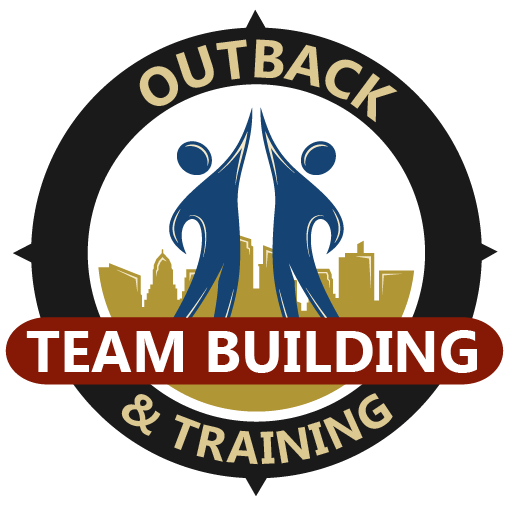Workplace etiquette and a fun, engaging environment are not mutually exclusive! Find out which company policies three business leaders recommend for best success in your office.

Workplace etiquette and a fun, engaging environment are not mutually exclusive! Find out which company policies three business leaders recommend for best success in your office.
Open concept offices, elaborate employee break rooms, and a more relaxed “start-up” vibe may be all the rage, but a strong company culture shouldn’t come at the cost of your office etiquette.
Different than stricter company policies and bylaws, work etiquette can refer to a general awareness of how you interact with your colleagues at the office. You likely won’t find a list documented in your company’s HR manual. Instead, these unwritten rules of the workplace are usually more common-sense guidelines.
But guidelines can be difficult to enforce. And just because something seems like common sense to you, doesn’t mean your colleagues will feel the same way.
So, when it comes to your company’s overall sense of professionalism, what’s the best way to share your expectations with your team and ensure employees abide by your office’s workplace etiquette?
We asked some of today’s business leaders to share their success stories of establishing and enforcing office etiquette within their companies. Of course, each person – whether a CEO or manager – had different philosophies and ideas of what’s most important. But there were three definite similarities when it came to the creation and sharing of these policies.
How to Effectively Create & Share Etiquette Guidelines at Work
Here’s a quick breakdown of how you can establish and enforce the etiquette rules that are right for your office:
- Determine Your Priorities: First, it’s important to decide what resonates with your business and office. With a quick company survey through a free online service like SurveyMonkey, you can figure out what’s important to your employees and leadership team. Based on your results, build out the policies you would like to put in place.
- Share Your Vision: Once you have an understanding of the type of atmosphere you want, you can choose how you would like to communicate your expectations to your team. Everything from a memo, posters, or even a jazzy video can all convey your message. It depends on what you think will resonate best with your colleagues and the tone you’d like to set.
- Uphold Your Policies: Now that your employees know what’s expected of them, be prepared to have serious talks with individuals who aren’t following the new guidelines. Remember, your team has communicated what’s important to them in a workplace environment, so it’s essential that you don't make light of that. But upholding office etiquette doesn’t have to fall solely on you! Here’s how your company can enforce your guidelines from the top down:
- Management: Ensure your leadership team is aligned and ready to champion the new policies. Include it as a topic of discussion at the next management meeting and answer any lingering questions. You can also provide bullet points to managers that cover why each policy was put into place, so that everyone is clear on how to communicate the messaging to their teams.
- HR & Office Coordinators: Change the norm - put it in writing. Add your etiquette expectations to your employee manual, so that it’s easy for people to refer to. Monthly reminders can also help keep guidelines top-of-mind for your team. Share them all, every time or focus on one or two “problem” policies each month. Emails or posters are easy options to spread the word.
- Team Members: Encourage employees to keep each other accountable. For accidental or small missteps, gentle verbal reminders from a colleague can be all it takes to get someone back on track. For constant or repeated violations, make sure everyone knows that they can discuss any issues with their manager or HR.
Great! Now you have actionable steps that you can take to create your own policies and put them into place. But what does that actually look like?
Read on to find out what business leaders from three very different companies had to say on the policies that help keep their offices aligned and in check.
Pro Tips on Office Etiquette from 3 Business Leaders
Regardless of your role, you can learn from the leaders of these three companies to discover effective and practical ways to create a thriving and professional work environment.
1. John Rampton – Founder and CEO of Calendar.com
 “As the CEO of my company, I like to set the stage by having simple office etiquette guidelines to follow. Here is how I implement these into my work environment.
“As the CEO of my company, I like to set the stage by having simple office etiquette guidelines to follow. Here is how I implement these into my work environment.
First, we protect and respect our time. We do this by keeping a shared calendar. We schedule everything on our calendar, from our own events to collaborative events. This gives everyone the chance to check out each other’s schedule before scheduling things with them. We like to establish a workplace culture where everyone’s time is valuable. We don’t have pointless meetings, and we schedule everything while still being able to make time for each other. We do have meetings, and they are once a week at the same time each week. Consistency is key here because then people remember each week, and nothing is a surprise.
Second, we work on a capacity basis. We accomplish this by letting each other know our capacity each week so the team knows who is available to take on small tasks for each other. We lean on each other for things, which is something that doesn’t seem to happen in a lot of work environments. The reason we lean on each other for things is so that no one ever gets overwhelmed. Of course, everyone still has their own unique role in the company, but when someone needs help or is feeling like they are above capacity, they know they can always ask the team for help. This helps my team feel more relaxed so they can be as productive as possible and provide value to each other.
Lastly, we promote team building. We accomplish this in many different ways. For example, we have team lunch on Fridays. We might go out to eat or we might just get it delivered to the office. Either way, it’s a great time to reflect on the work week and commence a great weekend ahead! Another thing we do to encourage team building is taking walks a few times a week. This gives us a chance to clear our minds as well as get away from the computers to get some fresh air. We have even done office yoga before, which is nice as well! No matter what the activity, it’s good to spend time together as a team - even if it’s an outing once a month, like taking the afternoon to be out on the town together. Whatever the case, team building is one of the most important parts of having good office etiquette. Not only do we enjoy spending this time together, but we always come back to the office feeling more productive afterwards.”
Outback’s Favorite Tip from John Rampton:
“First, we protect and respect our time.”
A Summary of Calendar.com’s Work Etiquette:
- Simplicity is key
- Protect and respect each other’s time
- Communicate your capacity
- Do regular team building
2. Daisy Jing – CEO and Founder of Banish
 “It is our policy here at Banish that one employee does not talk to another employee about things that employees can do nothing about. In other words, if the person you’re talking to cannot change the situation, please do not discuss it with him or her. Doing so would be considered gossip. Gossip isn’t tolerated at our company. If someone begins to involve you in gossip, it’s your responsibility to let him or her know that this is not okay.
“It is our policy here at Banish that one employee does not talk to another employee about things that employees can do nothing about. In other words, if the person you’re talking to cannot change the situation, please do not discuss it with him or her. Doing so would be considered gossip. Gossip isn’t tolerated at our company. If someone begins to involve you in gossip, it’s your responsibility to let him or her know that this is not okay.
Each team member is responsible for making sure the policies of our company are carried out. If you see another team member altering policy, it’s your responsibility to correct him or her or to let the employer or manager know so, he or she can correct the violator. If this doesn’t resolve the problem, submit a written report to the practice manager. This is not tattling. Tattling is a form of gossip that spreads news of no importance. On the other hand, reporting a policy violation is an employee’s duty. Policies that aren’t carried out or that are altered are detrimental to the team. Everyone must work for the good and progression of the team.
Constant communication and alignment in vision and mission are necessary for us to be respectful and not be the ‘mean girls’ who pull each other down. We empower others; it is a must that we ourselves are empowered within the company.”
Outback’s Favorite Tip from Daisy Jing:
“Everyone must work for the good and progression of the team.”
A Summary of Banish’s Work Etiquette:
- No gossip or tattling
- Keep each other accountable
- Constant communication
- Empower and respect each other
3. Polly Kay – Senior Marketing Manager at English Blinds
 “When the office was new and expanding rapidly, we naively avoided having office etiquette rules, thinking that everyone would be professional and adult enough to self-police.
“When the office was new and expanding rapidly, we naively avoided having office etiquette rules, thinking that everyone would be professional and adult enough to self-police.
Well, if your workforce numbers five or more people, let me tell you right now that you're going to have at least one tuna-sandwich-for-lunch-every-day gal, a liberally-applies-Axe-body-spray-at-their-desk guy, or a I-think-your-politics-just-suck dude to contend with.
So, our basic rules for office etiquette are:
- No hot or smelly food at your desk.
- No applying makeup or scents at your desk.
- No political discussions outside of break times, and if the other party or a manager calls end of topic, it's end of topic - even if you were winning! Also, no personal insults.
- If you listen to music at your desk, nobody else should be able to hear it.
- Ask others around you before you open or close a window, everyone has different opinions on a comfortable temperature.
- If you need to take a personal call or have a private conversation, step out.
These are a few basics, and you also do have to trust employees to be professional enough to not need micromanaging in all respects, but having set rules to refer back to can be helpful for if and when that approach fails!”
Outback’s Favorite Tip from Polly Kay:
“Trust employees to be professional enough to not need micromanaging in all respects.”
A Summary of English Blinds’ Work Etiquette:
- Keep your workspace professional
- No political discussions
- Desks are quiet zones
- Communicate before adjusting the office environment
4 Non-Offensive Ways to Interact with Your Coworkers
It’s possible that once you’ve defined your etiquette guidelines and shared them with your team, employees may start shying away from doing, well, almost anything at all!
To counteract this effect without taking away from your new set of office expectations, here are four fun ways you and your colleagues can continue to build and strengthen your working relationships.
- Weekly Meals as a Team: This could be you and your colleagues going out for lunch, ordering in pizza, or even taking a stroll as a group to a nearby coffee shop. Pick the same day each week so that it’s something for employees to look forward to.
- Volunteer Together: Find out what organizations are important to your team and offer the opportunity for employees to go volunteer as a group. Soup kitchens, clothing drives, and building items for those in need are all great options. For more suggestions, check out our blog post on 15 Creative Volunteer Ideas to Help Your Team Make a Difference.
- Bring in Office Treats: Take turns organizing a treat for the office every couple of weeks. You could alternate between cookies, donuts, or even something as simple as a carafe of coffee that wasn’t made at your office!
- Team Building Activities: Take a break from work and encourage your colleagues to tackle energizing tasks as a group. You could turn your boardroom into a temporary escape room, or experience your city like never before with a fun outdoor activity!
Learn More About Team Building Activities for Your Group
For more information about how team building activities can benefit your group, reach out to our Employee Engagement Consultants.


